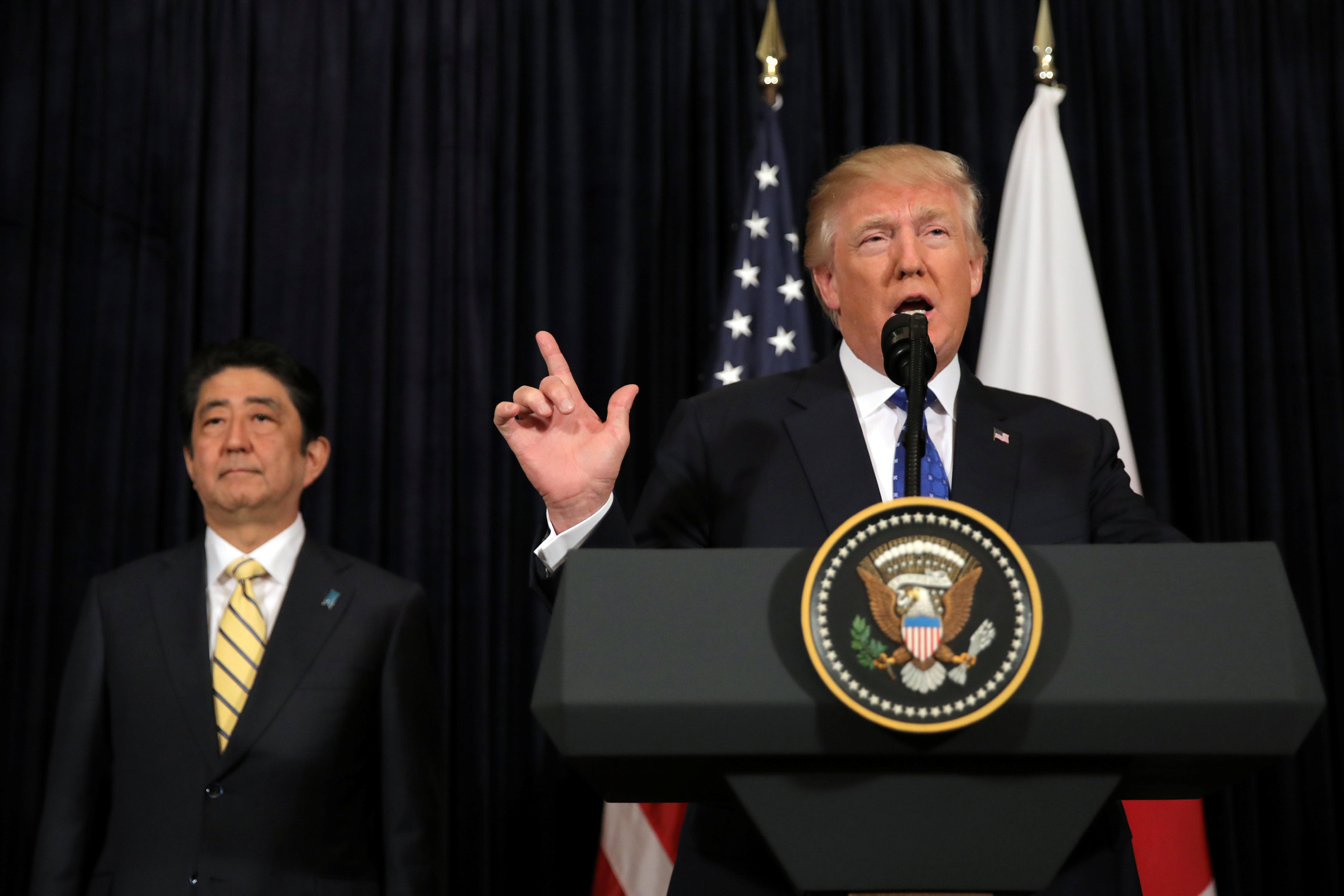President Donald Trump and Japanese Prime Minister Shinzo Abe delivered an abrupt joint statement Saturday night, addressing reports that North Korea test fired a ballistic missile into its eastern sea.
“I just want everybody to understand and fully know that the United States of America stands behind Japan, its great ally, 100%,” Trump said.
In his remarks, Abe called the launch “absolutely intolerable.”
Trump and Abe made their remarks from Mar-a-Lago, Trump’s estate in Palm Beach, Florida, and did not take questions from reporters.
The launch was North Korea’s first such test of the year and an implicit challenge to Trump’s new administration. But details of the launch, including the type of missile, were scant.
There was no immediate confirmation from the North, which had recently warned it is ready to test its first intercontinental ballistic missile. The reports come as Trump was hosting Abe and just days before the North is to mark the birthday of leader Kim Jong Un's late father, Kim Jong Il.
Trump ignored a shouted question about the developing situation as he, Abe and their wives posed for photos before heading to dinner at Trump's Mar-a-Lago estate in Florida. In Washington, public affairs officers for the Defense Department and the State Department had no immediate comment on the report.
The South's Joint Chiefs of Staff said in a statement the projectile was fired from around Banghyon, North Pyongan Province, which is where South Korean officials have said the North test launched its powerful midrange Musudan missile on Oct. 15 and 20.
The South's Yonhap news agency quoted an anonymous military source saying the missile flew about 500 kilometers (310 miles). But Yonhap reported that while determinations are still being made, it was not believed to be an ICBM.
The missile is believed to have splashed down into the sea between the Korean Peninsula and Japan. Japan's Chief Cabinet Secretary Yoshihide Suga told reporters the missile did not hit Japanese territorial seas. The North conducted two nuclear tests and a slew of rocket launches last year in continued efforts to expand its nuclear weapons and missile programs. Kim Jong Un said in his New Year's address that the country has reached the final stages of readiness to test an ICBM, which would be a major step forward in its efforts to build a credible nuclear threat to the United States.
Though Pyongyang has been relatively quiet about the transfer of power to the Trump administration, its state media has repeatedly called for Washington to abandon its "hostile policy" and vowed to continue its nuclear and missile development programs until the U.S. changes its diplomatic approach.
Just days ago, it also reaffirmed its plan to conduct more space launches, which it staunchly defends but which have been criticized because they involve duel use technology that can be transferred to improve missiles.
Kim Dong-yeop, an analyst at the Institute for Far Eastern Studies in Seoul, speculated the projectile could be a Musudan or a similar rocket designed to test engines for an intercontinental ballistic missile that could hit the U.S. mainland. Analysts are divided, however, over how close the North is to having a reliable long-range rocket that could be coupled with a nuclear warhead capable to striking U.S. targets.
___
Associated Press writer Kim Tong-Hyung in Seoul, South Korea, contributed to this report.
